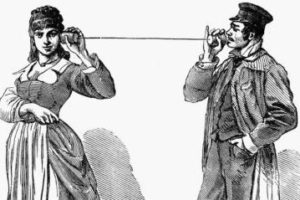I sat with my anger long enough until she told me her real name was grief.
~Source: The Minds Journal
Arts educators typically have a longer and more pronounced bond with their students than most other teachers, given that many have an opportunity to teach the same students for four or more years. The magic associated with the arts is linked primarily with ensemble learning, performing, creating, and sharing, whether it be dance, music, theatre, visual or media arts.
Consider that arts educators have lost at least one-quarter of the school year with their students, have been asked to pivot to remote learning almost overnight, and have great uncertainty about what next year will look like or even if their jobs are secure. Is it any wonder that teachers are suffering a shock and a great loss?
While teachers are doing their best to take care of students, how can we help them take care of themselves?
My good friend Patti Limon Sands is a licensed mental health therapist specializing in grief counseling. Patti currently works at the Dempsey Center in South Portland and Lewiston, Maine where she leads support groups for people who lost a loved one to cancer and those who struggle with the loss of their own health as they knew it. Patti also has a private practice, Riverbend Grief Coaching.
I asked Patti to help me better understand what arts teachers in particular may be experiencing and offer thoughts for a path forward.
Q: What is grief? How do people experience grief?
 Patti Limon Sands: Grief is an emotion we have as a result of a death or a loss. It is natural process, not a disorder or an illness. You may be grieving about anything you’ve lost, whether it’s a loved one, a job, a divorce or one’s health. Grief is an emotional reaction to change and it can involve many different feelings or changes in behavior. You may grieve a loss that has happened or one that you know is coming if, for example, a loved one is terminally ill.
Patti Limon Sands: Grief is an emotion we have as a result of a death or a loss. It is natural process, not a disorder or an illness. You may be grieving about anything you’ve lost, whether it’s a loved one, a job, a divorce or one’s health. Grief is an emotional reaction to change and it can involve many different feelings or changes in behavior. You may grieve a loss that has happened or one that you know is coming if, for example, a loved one is terminally ill.
Q: How would you describe what educators are experiencing now? Is it similar to grieving the loss of a loved one?
PLS: There are many similarities to grieving the loss of a loved one. Many of us are familiar with Kubler-Ross’s stages of grief: denial, anger, bargaining, depression and acceptance. These are often misinterpreted as linear stages to pass through in order to “get over” grief.
Instead, this is a framework that expresses some commonalities we may go through in no particular order or timeline. I have heard from many folks at the beginning of COVID-19 work at home orders who couldn’t take in the changes which were occurring. They were experiencing a perceivable lag time in processing what was happening to our world as we knew it. This can be seen as a form of denial. Or those who said they became very angry with those who don’t wear masks or yield for us on a walk. None of these responses are wrong or bad. It is helpful to understand what we are going through by naming our emotions and looking for common responses and reactions. We feel less isolated his way.
 Some are describing this time as “collective” grief. We are mourning the world as we once experienced it, and anticipitory grief, wondering what the world will be like in the future and wondering what we will be asked to give up. There is tremendous uncertainty, and our brains don’t like uncertainty.
Some are describing this time as “collective” grief. We are mourning the world as we once experienced it, and anticipitory grief, wondering what the world will be like in the future and wondering what we will be asked to give up. There is tremendous uncertainty, and our brains don’t like uncertainty.
There are so many losses and changes I can imagine educators are experiencing: learning how to work with unfamiliar technology, reinventing lessons and ways to assess progress, not being in the classroom and seeing and interacting everyday with their students, as well as a complete change in routine. And for music and arts teachers in particular, overarching questions about program sustainability and job security. Also, feelings of being overwhelmed – being faced with an onslaught of texts, email and calls from students, parents and administrators. All this while trying to support students and families virtually while juggling the needs and fears of their own and their children and families.
Q: Can you take us through a process that you might use with clients who are experiencing loss or grief?
 PLS: I listen carefully to their story and emotions. I normalize their reactions and frame them as natural responses to changes and loss. Fred Rogers said, “Anything that’s human is mentionable, and anything that is mentionable can be more manageable. When we can talk about our feelings, they become less overwhelming, less upsetting and less scary.” From there, we may focus on discovering natural supports, discussing beliefs or spirituality, planning for upcoming milestones or holidays or anniversaries and self-care.
PLS: I listen carefully to their story and emotions. I normalize their reactions and frame them as natural responses to changes and loss. Fred Rogers said, “Anything that’s human is mentionable, and anything that is mentionable can be more manageable. When we can talk about our feelings, they become less overwhelming, less upsetting and less scary.” From there, we may focus on discovering natural supports, discussing beliefs or spirituality, planning for upcoming milestones or holidays or anniversaries and self-care.
Q: What are some common misperceptions about grief?
PLS: A common misperception is the idea that we will pass through the many stages of grief and then achieve closure.
As mentioned above, there is a common misconception that if we followed the prescribed stages of grief we would get to “move on.” In Frank Ostaseski’s The Five Invitations, he refers to three stages of grief, which provide a useful antidote to the myth of closure: Loss, losing and loosening.
Loss: Refers to the loss we feel immediately; someone dies, or we lose our job or the world as we once knew it.
Losing: I like the term because it is an active verb which refers to the act of all the many “losings” which follow loss; for example, the first Mother’s Day without one’s mother or the first virtual classroom after work from home orders, etc.
Loosening: A lovely word which to me is a more accurate description of what happens to our grief with time. It doesn’t go away but loosens its grip on us. It also can teach us things. I would not wish pain on anyone; however, I think the experience can move us towards wisdom.
Q: What can teachers do to care for themselves?
 PLS:
PLS:
- Talk about what you are going through and name it.
- Find resources that support self-compassion and kindness.
- Develop a routine for adding some structure to your day.
- Try for some exercise as often as possible.
- Limit news intake; watch news in very small doses from reliable sources.
- Look for easy ways to begin a meditation/mindfulness practice such as free apps and podcasts. Remember to breathe.
- Practice gratitude. Try the simple practice of jotting down 3 things you are grateful for every day.
- Focus on ways to get consistent sleep.
- Find meaningful connection– through Zoom, phone, social media etc.
- Seek out nature, sunlight and fresh air.
What I’m learning about grief is that it is still learning about me
Learning that I am strong and resilient
If the trees can keep dancing,
So can I.
~ Community poem excerpt offered by NPR’s Kwame Alexander

Photo credit: All photos by Patti Limon Sands.





